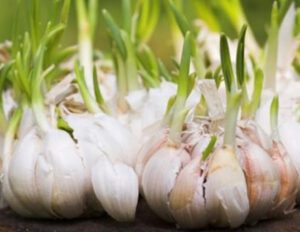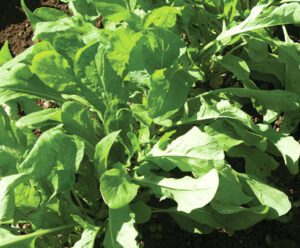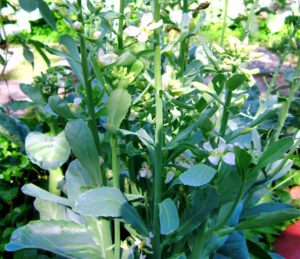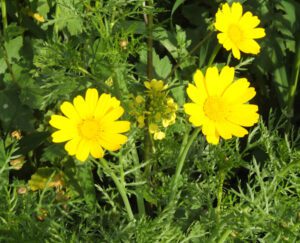Becoming a father was an immense milestone in your life. Now that your parents are getting older, caring for them is another landmark moment. The process happens gradually, but you can give them more support while promoting their independence by introducing them to horticulture. Once you know about the therapeutic uses of horticulture, you can better support your parents while continuing to care for your family, too.
What Is Horticulture?
Horticulture is a mixture of art and science involving plants. People who love horticulture might study how to diversify crops, tend to a backyard garden or grow food to feed their families. The diverse field welcomes people with numerous interests.
Interested horticulture enthusiasts can tailor their experiences to their physical needs and schedules. Your parents could make it a hobby or a full-time job, depending on their situation. If they work with plants in a therapeutic environment, they might gain physical and mental health benefits that improve their daily lives.

What Are the Therapeutic Uses of Horticulture?
Older adults can improve their wellness by indulging in horticulture activities. After discovering how the practice could benefit their well-being, consider encouraging your parents to try it.
1. Hobbies Form Friendships
People sometimes struggle with loneliness as they get older. They might retire before their work friends or develop conditions that keep them at home. Socializing is a therapeutic use of horticulture because it helps aging adults overcome isolation that could otherwise turn into heart disease, cognitive decline or obesity.
Your parents might start or join a local gardening club in their neighborhood. They could even tend to their plants with your kids during visits. If your parents only socialized with people from work, horticulture could introduce them to building a community through their hobbies.
2. Gardening Inspires Joy
The rewarding experience of seeing blooming flowers or delicious vegetables in your own garden fosters joy. Your parents might feel the same way after freeing their garden of weeds or watching their plants spring back to life after a good watering. Their mental health could become stronger if they have a daily activity that makes them happy, like horticulture.
3. Working With Plants Engages Mobility
Spending time alone, not going to work and lacking social interactions can leave older people with nothing to do. Sitting on the couch all day won’t help your parents’ mobility skills as they age. Gardening gets them on their feet, even if they tend to indoor plants.
Older horticulturists may need to stretch before their gardening activities begin, which is helpful in more than one way. Your parents will prepare their bodies for bending and lifting safely. They’ll also potentially improve their mood because stretching eases depression symptoms.
4. Plants Reduce Stress
People may consider retirement an extended vacation, but it can be stressful. If your parents overextend themselves in their volunteering efforts or feel anxious about the coming decades, help them set up a garden. Working with plants is a physical activity that gives stress an outlet. They could feel more at peace after their gardening responsibilities. Play their favorite music while you work together to make it even more fun.
5. Agricultural Activities Refine Coordination
Hand-eye coordination is a skill you need throughout your life. Older adults without hobbies may lose that skill faster. Even if they think they’ll manage, lacking good physical coordination could make them more likely to trip or bump into objects and hurt themselves in a fall.
Horticulture allows people to practice their hand-eye skills at any age. Your parents don’t have to pick a specific plant to gain the wellness benefit. Imagine them planting potatoes. The vegetable can grow almost anywhere globally, but digging in the dirt and harvesting with a shovel is required. Those actions are a few that strengthen a person’s coordination, especially as their bodies get weaker with age.
6. Growing Plants Improves Cognitive Stimulation
No one enjoys feeling bored. If you don’t have a work schedule or lively social life, that boredom can affect your mental health. Therapeutic horticulture stimulates the brain by activating problem-solving skills. Your parents will have to battle weeds, deal with pests, manage growth calendars and potentially track harvest dates. The activities will keep their minds from growing bored.

How to Help Your Parents Enjoy More Horticulture?
If your parents might enjoy gardening as a therapeutic hobby, use some strategies to get them involved. You could kick-start a new passion that makes them feel better than ever.
Discuss Their Gardening Experience
Ask your parents if they’ve ever worked with plants before. They might have existing green thumbs you didn’t know about. If they haven’t, you’ll know how to encourage them. They might need books on watering outdoor plants or benefit from watching videos on how to grow flowers from seeds.
Pinpoint Where They’ll Grow Plants
There are many reasons why people choose to garden indoors or outdoors. Your parents might prefer indoor plants because you live in a hot climate or outdoor plants because they already spend time on their porch. The extra sunlight may even improve their vitamin D levels, which helps them achieve a better daily nutrient intake. Discuss their preference to prepare their therapeutic horticulture experience.
Remember Their Current Abilities
Your parents might want an outdoor tomato garden, but hauling the garden hose around could be too much for them. Their muscles, joints or stamina may not be able to handle the activity. As you encourage them to explore gardening, remember what they can comfortably and safely do at their age.

Ease the Symptoms of Aging With Horticulture Activities
Therapeutic horticulture helps many older adults improve their well-being. Your aging parents might find joy in the activity, use it to socialize or make gardening their new form of gentle exercise. Encourage them to try it. You can always bring your kids along, so exploring a new hobby becomes a fun family activity.





